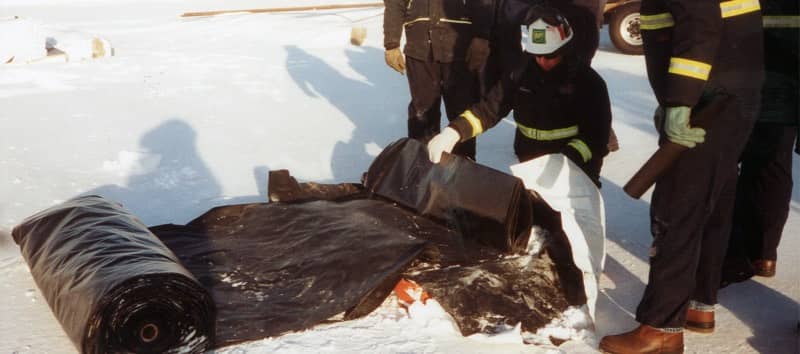 Many people want to know how long their geomembrane will last prior to signing the check. They ask their consultants about the best ways to test their materials, especially against typical weather conditions of their geographical region. However, there are no simple answers for this question and buyers are often left to worry that their geomembrane might fail.
Many people want to know how long their geomembrane will last prior to signing the check. They ask their consultants about the best ways to test their materials, especially against typical weather conditions of their geographical region. However, there are no simple answers for this question and buyers are often left to worry that their geomembrane might fail.
The problem with estimating comes from the fact that a wide variety of variables can affect the longevity of your geomembrane. Below are some of the most commonly considered factors.
Location
Your unique geographical location has its own climate that must be considered when choosing the best geomembrane for your application. This includes analyzing the seasonal shifts. Due to the variability between locations, even those relatively close to one another, it’s difficult to create a test that will produce accurate results.
Yearly Differences
Every year your geomembrane with experience different weather conditions. In order to try to normalize this for a calculation, consultants often look at averages spanning over ten year intervals. However, these averages might not be an accurate representation of the next ten years meaning that the results are just another estimate.
Orientation
The orientation of your geomembrane depends heavily on application. Regardless, there are a few questions to ask yourself regarding the exposure of your geomembrane to UV rays.
- Is my geomembrane directly in the sun or is it shaded?
- Do the surroundings reflect sunlight onto my geomembrane?
- How much of my geomembrane will be consistently exposed to intense sun?
These questions can assist you in determining what geomembrane is best suited for your project, but it is again important to note that the other variables mentioned also affect this factor, so generalizations might not be as accurate as you hoped.
Degradation
Degradation can be caused by solar radiation, temperature, water, and other environmental contaminates. The performance of a geomembrane is directly related to the performance of its properties as a whole, so when these factors start to breakdown the polymers due to high exposure, the entire geomembrane can fail. Testing unfortunately has varied results, as one test might have no effect on a degradation process, but then seriously impact another. It’s important to remember than any testing results should be considered estimates.
Overall, knowing the geomembrane you are using, as well as its location and application, will help you make a rough estimate regarding the longevity of your product. Reach out to the manufacturer to see if they have any case studies or current projects near your location to view. They’ll be able to give you more insight into how their specific geomembrane ages, which can then be factored into your own calculations.
How do you determine how weathering will affect your geomembrane project? Share your thoughts in the comments.




